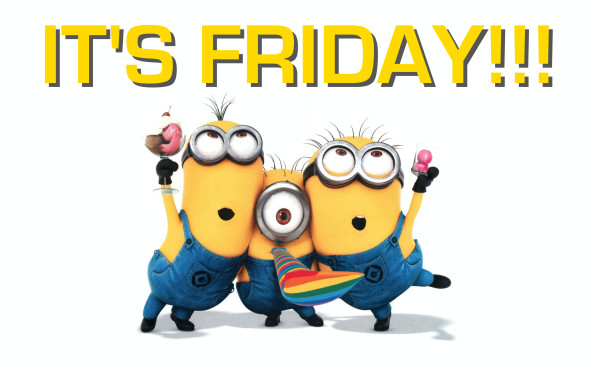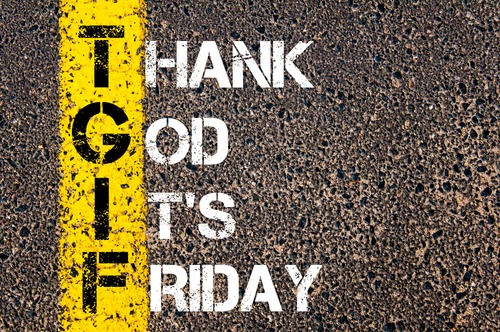Every Friday, like clockwork, an invisible switch flips in our minds. Whether we’ve had a productive week or a stressful one, there’s a collective sigh of relief that sweeps through offices, classrooms, group chats, and even social media feeds.
That sigh has a name: ”TGIF”—Thank God It’s Friday.
But have you ever stopped to wonder why Friday feels so good? What causes the psychological shift from fatigue to joy, and why is this reaction nearly universal across cultures and workplaces?
Is it just about the end of the workweek — or something much deeper?
This article dives into the psychology behind the TGIF phenomenon, why it matters more than you think, and how we can channel that energy throughout the week — not just at the finish line.

What Is the “TGIF” Effect?
The “TGIF Effect” refers to the emotional uplift and mental release most people experience at the end of a structured workweek. It’s that buzz you get knowing you’re about to regain control over your time, indulge in personal activities, or simply rest.
Psychologists describe this feeling as a motivational and emotional response to patterns, rewards, and social cues. It’s more than just ending your shift — it’s the relief of survival, the excitement of freedom, and the joy of shared release.
1. Your Brain Craves Patterns — and Friday Is the Reward
Humans are creatures of habit, and our brains love predictability. The five-day workweek functions like a loop: push through the grind, then enjoy a pause. Over time, our brains associate Fridays with:
- Completion
- Anticipated relaxation
- Personal freedom
- Social time
This is tied to our dopamine system. Dopamine isn’t released only when you receive a reward — it starts spiking in anticipation of a reward. That’s why even if you’re still at your desk Friday afternoon, your mood can feel lighter and your energy renewed — your brain is already preparing for joy.
This phenomenon is a textbook case of Pavlovian conditioning: the moment Friday arrives, our brain links it to positive outcomes, and that association becomes stronger over time.
2. Time Autonomy Fuels Joy
One of the most profound reasons people love Fridays is freedom. Not necessarily freedom from labor — but from lack of control.
During the week, many people follow rigid schedules. Wake up early, clock in, respond to emails, attend meetings. There’s often little room for spontaneity or personal decision-making.
But when Friday comes around, especially toward the evening, you get to decide what you’ll do — sleep in, hang out, binge-watch, run errands on your terms.
This perceived autonomy is powerful. Psychological studies consistently show that people are happiest when they feel in control of their time — even if they are still technically working.
3. Fridays Create a Social High
TGIF is more than an individual mood shift — it’s collective. There’s a contagious, communal energy to Fridays. It plays out in:
- Lighter moods in offices
- Increased casual interactions
- Shared weekend plans
- Higher engagement on social media
This shared feeling builds emotional resonance, which strengthens team bonds, friendships, and even customer relations. Companies that embrace this — through casual Fridays, shorter hours, or themed activities — often see stronger workplace cultures.
The social aspect of Fridays turns what could be a simple calendar day into a symbol of emotional unity.
4. The Contrast Principle at Work
Interestingly, Fridays often feel better than they should. After all, it’s still a workday for most people. But our minds don’t function purely on logic — they work with contrast.
The contrast principle in psychology explains how people judge experiences based on the difference from what comes before or after. After a long week, Friday looks dramatically better in contrast to Monday, Tuesday, and Wednesday. And because the weekend is so close, that contrast sharpens.
This is also why Friday evenings feel better than even Saturday mornings — the buildup and release are strongest when there’s a clear transition from effort to ease.
5. Fridays Represent Hope, Not Just Relief
Hope is one of the most powerful human emotions, and Fridays symbolize it perfectly. They represent
- A fresh chance to rest
- Time to reconnect with loved ones
- A pause from stress
- New possibilities
Even when people are burned out or overwhelmed, the idea that the weekend is approaching can sustain morale. Hope has been shown to improve resilience, motivation, and even problem-solving abilities.
6. The Dark Side: When TGIF Becomes a Lifeline
While the TGIF feeling is comforting, it can also be a warning sign. If you find yourself clinging to Friday just to get through the week, it may indicate deeper dissatisfaction with your daily life or work environment.
Consider these red flags:
- You feel dread every Sunday night.
- You “mentally check out” by Thursday afternoon.
- Your only source of joy is the weekend.
- You live for vacations or holidays.
In such cases, TGIF isn’t just a celebration — it’s a survival mechanism. This could point to burnout, disengagement, or a lack of purpose.
Workplaces should pay attention. If employees only light up on Fridays, it’s time to reassess:
- Workload balance
- Company culture
- Manager-employee relationships
- Recognition and reward systems
7. How Companies Can Respond to the TGIF Phenomenon
Forward-thinking organizations are using the insights behind TGIF to reshape workplace experiences. Some popular strategies include
- Flexible Fridays: Optional work-from-home days or shorter hours
- Wellness Activities: End-of-week yoga, meditation, or game breaks
- Reflection Meetings: Allowing teams to reflect on wins and set light goals
- Casual Dress Codes: Signaling a relaxed end-of-week atmosphere
Rather than fighting the TGIF feeling, these practices harness it, improving morale, performance, and retention.
8. Bringing the TGIF Energy Into Every Day
Wouldn’t it be amazing if every day carried a little of that Friday sparkle? While we can’t stretch the weekend, we can restructure our mindset and habits to make each day feel more balanced and hopeful.
a. Schedule Midweek Joys
Add something exciting to your Tuesday or Wednesday — lunch with a friend, an early gym session, or a 30-minute walk.
b. Design Better Mondays
Instead of cramming your toughest tasks into Monday, ease into the week with light planning, coffee catch-ups, or quiet solo work.
c. Incorporate Mini-Wins
Track and celebrate small accomplishments daily. This builds momentum and gives you something to feel good about all week.
d. Mix Your Routine
Add variation to your daily schedule — a new playlist, a themed dress day, or working in a different location.
e. Practice Gratitude
The relief you feel on Friday often comes with appreciation — for surviving, for making progress, or for time off. You can feel this on other days, too, with a consistent gratitude journal or reflection habit.
9. Cultural Differences in “Weekend Euphoria”
Interestingly, the TGIF feeling isn’t universal in the same form — it varies based on culture, religion, and national work structures.
- In some Middle Eastern countries, Fridays are part of the weekend, with Sunday as the workday.
- Countries with shorter workweeks, like Norway or Denmark, report less intense Friday euphoria — possibly because their weekdays are more balanced.
- Japan, with its strong work ethic and long hours, has a muted TGIF culture, but young professionals are beginning to embrace it with after-work leisure trends.
Despite the differences, one thing remains constant: humans crave closure, freedom, and autonomy, and any day that delivers these becomes sacred.
10. When Fridays Aren’t an Option
Not everyone works a 9-to-5 or a Monday-to-Friday schedule. Shift workers, healthcare professionals, freelancers, and creatives often have non-linear work patterns. So how do they experience TGIF?
Surprisingly, they still do — but not on Fridays. For them, the concept is symbolic, not calendar-bound.
Their TGIF might fall on a Tuesday morning or Sunday night — whenever their personal “weekend” starts. The brain still anticipates and responds to time off, regardless of when it falls.
This reinforces the idea that the TGIF feeling isn’t about the day — it’s about emotional release, hope, and rest.
TGIF as a Mirror
The TGIF phenomenon is a window into how we live, work, and feel. It reflects our emotional cycles, our cultural conditioning, and our need for reward.
But it also holds a challenge.
If we’re only truly happy on Fridays, what does that say about our Mondays, Tuesdays, and Wednesdays? What would life look like if we built more balance, more joy, and more TGIF moments into every day?
Because maybe the goal isn’t just to live for the weekend but to build a life that doesn’t require escape.
Let TGIF be more than a feeling. Let it be a reminder — to rest, to reflect, to reconnect, and to redesign the way we show up in our days.

